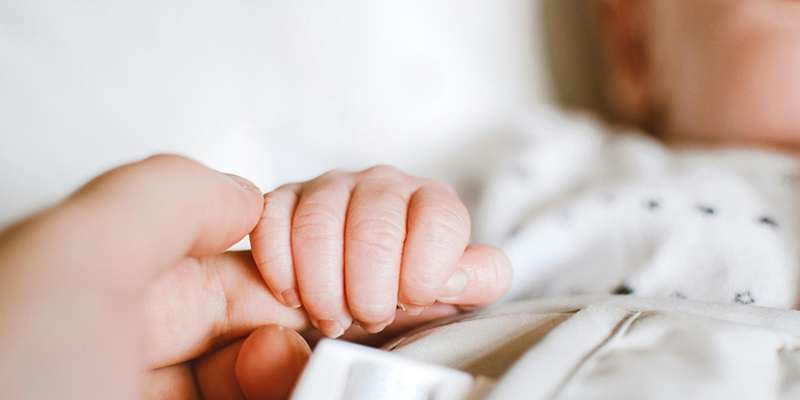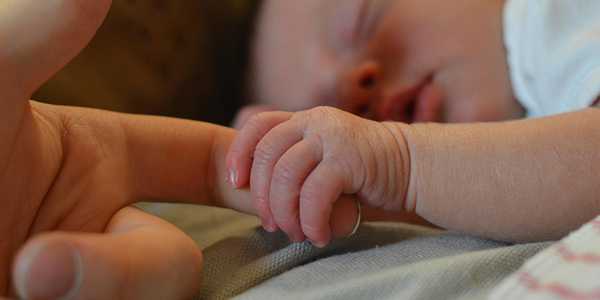The World’s 10 Best Hotels 2024: Your Next Dream Stay
VIP Travel Experiences: Top Tips and Destinations for Your Next Trip
How to Choose the Right Air Fryer for Your Kitchen?
13 Minimalist Living Room Design Ideas for Modern Homes
How to Nurture Mental Health for Busy Parents
Conscious Vs Subconscious Mind: What's The Difference?
Quality Time with Kids: 10 Fun Family Activities
Screen-Free Parenting: Effective Ways to Limit Screen Time and Foster Healthy Habits
Baby Skincare 101: Tips for Sensitive Skin
Generally, babies' skin is famously soft and fragile, and they can be exceptionally sensitive and prone to several skin problems. Parents need to research how to deal with their baby's sensitive skin to ensure their children are comfortable and their skin is protected. Parents should be on the lookout for the symptoms of sensitive skin and how to take care of it.
Generally, babies' skin is famously soft and fragile, and they can be exceptionally sensitive and prone to several skin problems. Parents need to research how to deal with their baby's sensitive skin to ensure their children are comfortable and their skin is protected. Parents should be on the lookout for the symptoms of sensitive skin and how to take care of it.
Babies are more easily irritated by allergies, environmental variables, and harsh cosmetics since their skin is thinner and more porous than an adult's.
Helpful Tips for Sensitive Skin
Mothers cannot be careful enough when it comes to the baby's skin. Naturally, babies' skin changes as they grow, which is considered normal, but the following tips will shed more light on do's and don'ts to achieve free-rashes baby skin.
1. Picking the Appropriate Items
As a mother, research the items you choose for your baby before using them on their skin. You conquer 60% of your baby's skin irritation by avoiding alcohol or dyes in soaps, lotions, and shampoos. Lotions and shampoos free of fragrance or chemicals give soft, nourished skin to the baby. Moreover, use fragrance-free moisturizers and creams. To keep your baby's sensitive skin from reacting to detergents, look for alternatives such as fragrance-and dye-free detergents.
2. Influence of Climate Varieties
Due to their delicate skin, infants are more susceptible to the harmful impacts of weather extremes than adults. Air quality, temperature, and humidity can affect a baby's skin. For example, skin can get dry and irritated due to exposure to cold and dry air. Baby's skin can get sunburned and damaged more easily from too much sun exposure. Wearing a hat and sunscreen on bright days and moisturizing their skin during cooler months are great ways to protect your baby's skin.
Babies react to things differently, and if after a few days of no improvement, it is important to see a paediatrician.

3. Water Temperature
It is important to check the temperature of the water before bathing the baby. Too hot water may cause redness, dryness, and itchiness of the skin. Preferably consider using lukewarm water.
4. Towel
To dry the baby's skin, use a soft towel to pat the body without rigorous rubbing, which can irritate the skin.
5. Type of clothes
For proper airflow and to reduce skin irritation, dress your infant in comfortable, breathable wear. Babies can get eczema and other skin problems if the room temperature is too hot or cold.
6. Regular Clearing
It is essential to keep your hands clean at all times before touching the baby. Peradventure, there is no soap and water; use sanitiser that kills 99.9% of viruses and bacteria.
7. Environmental Factors and Infant Skin
The environment or surroundings where babies live and play must always be cleaned. For example, mopping the floor, including toys the infant touches, should be cleaned and disinfected. Furthermore, using a moist humidifier around the house contributes moisture to the air, preventing baby skin from dryness.
8. Type of wipes
Baby's skin can get irritated when they pee and poop in the diaper. To further help baby's skin sensitivity from their faeces and pee, use baby wipes that are alcohol- and fragrance-free when changing diapers or go for Water-based wipes.
9. Treating Sensitive Skin with Diaper Care
Babies pee and faeces often cause diaper rashes. When this happens, Use a gentle cloth dampened with lukewarm water or gentle baby wipes to clean the diaper region. Apply Zinc oxide cream or petroleum jelly to the area. It clears off within a few days.
However, to reduce the likelihood of skin problems, diaper rash cream should frequently be applied after every diaper change. If your baby develops or persists in experiencing worsening symptoms of diaper rash or skin irritation, it is important to seek the advice of a healthcare practitioner.

10. Babies drool
It is not new that babies drool a lot, and it can cause rashes around the mouth, neck, chest, and chin, especially while teething. These rashes usually won't cause any harm, but if the region gets red, swollen, or shows symptoms of infection, it's best to see a paediatrician.
11. Importance of Proper Attire and Sleeping Conditions
Babies' skin health can be improved with the help of appropriate clothing and bedding. Babies' delicate skin is especially vulnerable to the abrasion and inflammation caused by rough textiles. Wearing cotton or another breathable material will help them maintain a healthy body temperature and reduce the likelihood of rashes. To lessen the likelihood of chemical skin irritation, choose hypoallergenic and fragrance-free detergents when washing baby clothing, blankets, and bedding.
Commonly Asked Questions
How can you know if your infant has skin sensitivities?
Parents must identify possible triggers and eliminate them from the child's surroundings. If fragrance laundry soap or detergent is what you have been using and the baby's skin is irritated, it is best to change to fragrance-free laundry detergents/soap and then watch for any improvement.
If there is no improvement, consult your baby's paediatrician.
How can I help my baby, who has a skin allergy?
Treatments for infant skin allergies vary with reaction severity and underlying cause. Most of the time, a doctor will prescribe an antihistamine, topical steroid, or hydrocortisone cream. When dealing with skin allergies in babies, it is essential to find out what could be causing them and get rid of it.
The unique requirements of your infant's skin should be your priority. Learn which baby lotion is best for eczema if your kid is born with the condition. Ingredients that calm and lessen irritation in sensitive skin are common in these targeted lotions.
Choosing Natural Care for Your Baby's Skin
Try to invest in organic baby lotion or other natural options. There are lotions made with plant-based components and include less synthetic chemicals.
Create the habit of reading the ingredients label carefully before deciding on a baby product you will use on your baby's skin. Also, remember to read reviews, as other moms out there will recommend a product if it's good for their baby's skin. Keep your baby away from lotions known to irritate the skin due to their chemical and dye ingredients.
It would help if you only used lotions with fragrances made from natural ingredients, not synthetic ones. Remembering these things can help keep your baby's skin healthy and hydrated. Baby skincare is easy to manage as they grow from infants to toddlers, and do not forget to seek professional help.












